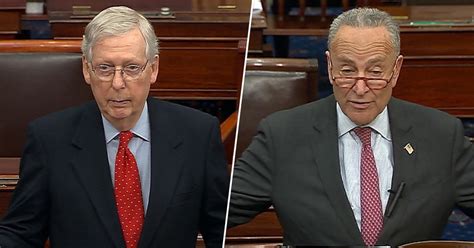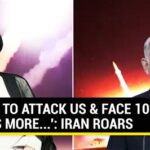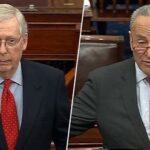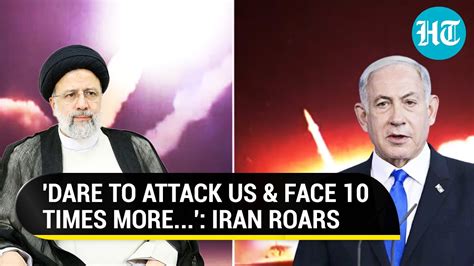
Senate Minority Leader Mitch McConnell has characterized the recent U.S. strikes in Iran as a “necessary and proportionate response” to the escalating attacks on American forces in the region, emphasizing the need for continued vigilance and a clear strategy to deter further aggression.
McConnell, in a statement released on Saturday, acknowledged the inherent risks associated with military action but underscored the importance of demonstrating resolve in the face of persistent threats. “These strikes were a necessary and proportionate response to the continued attacks against U.S. service members,” he stated. He further asserted that the Biden administration must articulate a comprehensive strategy to prevent future provocations and protect American interests in the Middle East. “The President must be clear with the American people about the strategy behind our military actions in the Middle East,” McConnell added.
The strikes, which targeted facilities used by Iran-backed militia groups, come amid heightened tensions in the region following the October 7th attacks in Israel and the subsequent conflict in Gaza. These attacks have been attributed to various proxy groups supported by Iran, including those operating in Iraq and Syria. The U.S. has repeatedly warned Iran to rein in its proxies and de-escalate the situation, but these warnings have largely gone unheeded, leading to the recent retaliatory actions.
McConnell’s statement reflects a broader sentiment among many Republicans in Congress who have been critical of the Biden administration’s approach to Iran. They argue that the administration’s policies have emboldened Iran and its proxies, leading to increased instability in the region. McConnell has been a vocal advocate for a more assertive stance against Iran, including the imposition of stricter sanctions and a willingness to use military force when necessary.
The timing of the strikes and McConnell’s reaction also coincides with ongoing debates in Congress about the U.S. role in the Middle East and the extent of its commitment to regional security. Some lawmakers have called for a reduction in U.S. involvement, citing the high costs and potential risks of entanglement in regional conflicts. Others argue that the U.S. must maintain a strong presence to deter aggression and protect its interests and allies.
McConnell’s statement also highlights the political complexities surrounding the issue. While there is broad agreement on the need to protect American forces, there are deep divisions over the best way to achieve that goal. Democrats and Republicans have clashed over issues such as the Iran nuclear deal, sanctions policy, and the use of military force. These divisions have made it difficult to forge a consensus on a coherent Iran strategy.
The U.S. strikes in Iran are likely to further escalate tensions in the region, and the potential for miscalculation and unintended consequences remains high. It is crucial that the Biden administration clearly communicates its objectives and strategy to both Congress and the American people. The administration must also work with its allies to de-escalate the situation and prevent a wider conflict.
The strikes follow a pattern of escalating aggression, with Iran-backed militias conducting numerous attacks against U.S. forces stationed in Iraq and Syria. These attacks have included rocket and drone strikes, resulting in injuries to American personnel and damage to infrastructure. The U.S. has responded with a series of retaliatory strikes, but these actions have so far failed to deter further attacks.
The situation is further complicated by the ongoing conflict in Gaza, which has inflamed tensions throughout the Middle East. Iran has been a vocal supporter of Hamas, the militant group that controls Gaza, and has used the conflict to rally support for its regional agenda. The U.S. has been working to de-escalate the conflict and prevent it from spreading, but these efforts have been hampered by the deep divisions between Israelis and Palestinians, as well as the involvement of regional actors such as Iran.
McConnell’s statement underscores the challenges facing the U.S. in the Middle East. The country must balance the need to protect its interests and allies with the desire to avoid entanglement in costly and potentially dangerous conflicts. It must also contend with a complex web of regional rivalries and proxy wars, as well as the threat of terrorism and extremism.
Ultimately, the success of U.S. policy in the Middle East will depend on its ability to forge a coherent strategy that addresses these challenges and promotes stability and security in the region. This will require a combination of diplomacy, economic pressure, and military deterrence, as well as a willingness to work with allies and partners to achieve common goals.
The latest U.S. strikes, and McConnell’s remarks, arrive at a critical juncture as the Biden administration navigates a complex and volatile geopolitical landscape. The ripple effects of these actions, both domestically and internationally, are likely to be far-reaching and will shape the future of U.S. foreign policy in the region for years to come. The pressure is on the administration to articulate a clear and sustainable strategy that can safeguard American interests while preventing further escalation and instability.
In-Depth Analysis and Background Information:
The geopolitical landscape of the Middle East has been fraught with instability for decades, characterized by a complex interplay of regional rivalries, sectarian conflicts, and the involvement of external powers. The U.S. has maintained a significant presence in the region for decades, driven by strategic interests such as securing access to oil resources, combating terrorism, and protecting allies like Israel and Saudi Arabia. However, the U.S. involvement has often been met with resistance and has been a source of controversy both at home and abroad.
Iran has emerged as a major player in the region, pursuing its own strategic interests and challenging the U.S.-led order. Iran’s support for proxy groups such as Hezbollah in Lebanon, Hamas in Gaza, and various militias in Iraq and Syria has allowed it to exert influence throughout the region and project power beyond its borders. The U.S. views Iran’s activities as destabilizing and has sought to contain its influence through a combination of sanctions, military deterrence, and diplomatic engagement.
The nuclear deal, officially known as the Joint Comprehensive Plan of Action (JCPOA), was a landmark agreement reached in 2015 between Iran and six world powers (the U.S., the UK, France, Germany, Russia, and China). Under the agreement, Iran agreed to limit its nuclear program in exchange for the lifting of economic sanctions. The Trump administration withdrew from the JCPOA in 2018 and reimposed sanctions on Iran, arguing that the agreement was too weak and did not address Iran’s other malign activities. The Biden administration has sought to revive the JCPOA, but negotiations have stalled due to disagreements over sanctions relief and Iran’s nuclear program.
The October 7th attacks in Israel and the subsequent conflict in Gaza have further inflamed tensions in the Middle East. The attacks have sparked outrage and condemnation around the world, but they have also highlighted the deep-seated grievances and unresolved issues that continue to fuel the Israeli-Palestinian conflict. Iran has seized on the conflict to rally support for its regional agenda and has accused the U.S. of supporting Israel’s actions.
The U.S. strikes in Iran are a direct response to the escalating attacks on American forces in the region. These attacks have been attributed to Iran-backed militias, who are believed to be acting on Tehran’s instructions. The U.S. has repeatedly warned Iran to rein in its proxies, but these warnings have been ignored, leading to the recent retaliatory actions. The strikes are intended to deter further attacks and to send a message to Iran that the U.S. will not tolerate the targeting of its forces.
However, the strikes also carry significant risks. They could escalate tensions in the region and lead to a wider conflict. They could also backfire and embolden Iran and its proxies to carry out further attacks. It is crucial that the Biden administration carefully considers the potential consequences of its actions and takes steps to mitigate the risks.
McConnell’s statement reflects the deep divisions in Congress over U.S. policy towards Iran. Republicans have generally favored a more hawkish approach, arguing that the U.S. must be willing to use military force to deter Iranian aggression. Democrats have been more divided, with some supporting a more diplomatic approach and others favoring a tougher stance. These divisions have made it difficult to forge a consensus on a coherent Iran strategy.
The future of U.S. policy in the Middle East remains uncertain. The region is facing numerous challenges, including the threat of terrorism, the spread of extremism, and the rise of regional powers like Iran. The U.S. must navigate these challenges carefully and develop a strategy that promotes stability and security in the region while protecting its own interests. This will require a combination of diplomacy, economic pressure, and military deterrence, as well as a willingness to work with allies and partners to achieve common goals.
The current situation also raises broader questions about the U.S. role in the world. Some argue that the U.S. should reduce its involvement in the Middle East and focus on domestic priorities. Others argue that the U.S. must maintain a strong presence in the region to protect its interests and allies. These are complex questions with no easy answers, and they are likely to be debated for years to come.
Expanded Context and Analysis:
The significance of Senator McConnell’s statement lies not only in its immediate reaction to the U.S. strikes but also in its broader implications for the ongoing debate about U.S. foreign policy in the Middle East. McConnell, a seasoned political figure with decades of experience in Washington, represents a significant faction within the Republican Party that advocates for a strong and assertive U.S. role in global affairs. His endorsement of the strikes as “necessary and proportionate” signals a continuation of this hawkish stance, particularly concerning Iran.
His call for the Biden administration to articulate a clear strategy is a recurring theme in Republican critiques of the President’s foreign policy. It reflects a concern that the administration lacks a coherent plan for dealing with the multifaceted challenges posed by Iran, its proxies, and the wider instability in the region. This concern is not entirely unfounded, as the administration has struggled to balance its desire to revive the JCPOA with the need to address Iran’s other malign activities, such as its support for terrorism and its ballistic missile program.
The timing of McConnell’s statement is also noteworthy. It comes amidst heightened political polarization in the U.S., with deep divisions between Democrats and Republicans on a wide range of issues, including foreign policy. McConnell’s statement can be seen as an attempt to rally Republican support for a more confrontational approach to Iran and to put pressure on the Biden administration to adopt a tougher stance.
The potential consequences of the U.S. strikes and McConnell’s statement are far-reaching. They could lead to a further escalation of tensions in the region, potentially triggering a wider conflict. They could also undermine efforts to revive the JCPOA, making it more difficult to constrain Iran’s nuclear program. On the other hand, they could deter Iran from further aggression and create an opportunity for a more stable and secure Middle East.
The success of U.S. policy in the Middle East will depend on a number of factors, including the effectiveness of its diplomacy, the strength of its military deterrence, and the willingness of its allies to work together. It will also depend on the ability of the U.S. to address the underlying causes of instability in the region, such as poverty, inequality, and political repression.
The U.S. strikes and McConnell’s statement serve as a reminder of the complexities and challenges facing the country in the Middle East. There are no easy solutions to these problems, and any course of action will involve risks and trade-offs. It is crucial that the U.S. carefully considers the potential consequences of its actions and works with its allies to promote stability and security in the region.
Furthermore, the global context surrounding these events cannot be ignored. The war in Ukraine has strained international relations and diverted attention and resources away from other regions. The rise of China as a global power has also created new challenges for the U.S. The U.S. must navigate these challenges while also dealing with the complex situation in the Middle East.
The long-term implications of the U.S. strikes and McConnell’s statement are difficult to predict. However, it is clear that they will have a significant impact on the future of U.S. foreign policy in the region. The U.S. must be prepared to adapt its strategy as circumstances change and to work with its allies to achieve its goals.
In conclusion, Senator McConnell’s reaction to the U.S. strikes in Iran underscores the ongoing debate about U.S. foreign policy in the Middle East. His statement reflects a hawkish stance towards Iran and calls for a clear strategy to deter further aggression. The potential consequences of the strikes and McConnell’s statement are far-reaching and could have a significant impact on the future of the region. The U.S. must carefully consider its options and work with its allies to promote stability and security.
The Evolving Narrative and Strategic Considerations:
The narrative surrounding U.S. involvement in the Middle East has undergone significant evolution over the past several decades. From the initial focus on containing Soviet influence during the Cold War to the subsequent emphasis on combating terrorism after 9/11, the strategic priorities have shifted in response to changing geopolitical realities. The rise of Iran as a regional power and its pursuit of nuclear capabilities have added another layer of complexity to the equation.
The U.S. strategy towards Iran has traditionally involved a combination of containment and deterrence. Containment seeks to limit Iran’s influence through sanctions, diplomatic isolation, and support for regional rivals. Deterrence aims to dissuade Iran from aggression through the threat of military force. However, this strategy has faced challenges, particularly in light of Iran’s ability to project power through its proxy groups.
The U.S. strikes in Iran represent a more assertive approach to deterrence, signaling a willingness to use military force to respond to attacks on American forces. However, this approach also carries risks, as it could escalate tensions and lead to a wider conflict. The Biden administration must carefully calibrate its response to ensure that it is both effective and proportionate.
Senator McConnell’s statement reflects a broader concern that the Biden administration’s policies have emboldened Iran and its proxies. He argues that a more assertive approach is necessary to deter further aggression and protect American interests. This view is shared by many Republicans in Congress, who have been critical of the administration’s efforts to revive the JCPOA.
The strategic considerations surrounding U.S. policy in the Middle East are complex and multifaceted. The U.S. must balance its desire to protect its interests and allies with the need to avoid entanglement in costly and potentially dangerous conflicts. It must also contend with a complex web of regional rivalries and proxy wars, as well as the threat of terrorism and extremism.
The U.S. must also consider the long-term implications of its actions. A military conflict with Iran could have devastating consequences for the region and the world. It could also undermine efforts to address other pressing challenges, such as climate change and global poverty. It is crucial that the U.S. pursues a strategy that promotes stability and security in the region while also addressing the underlying causes of conflict.
The evolving narrative and strategic considerations surrounding U.S. policy in the Middle East highlight the need for a comprehensive and nuanced approach. The U.S. must be prepared to adapt its strategy as circumstances change and to work with its allies to achieve its goals. It must also be willing to engage in diplomacy and to address the underlying causes of conflict.
Frequently Asked Questions (FAQ):
-
Why did the U.S. conduct strikes in Iran?
The U.S. conducted strikes in Iran in response to repeated attacks on American forces stationed in Iraq and Syria. These attacks, attributed to Iran-backed militia groups, have resulted in injuries to U.S. personnel and damage to infrastructure. The strikes were intended to deter further attacks and to send a message to Iran that the U.S. will not tolerate the targeting of its forces.
-
What was Senator McConnell’s reaction to the U.S. strikes?
Senator McConnell characterized the U.S. strikes as a “necessary and proportionate response” to the continued attacks against U.S. service members. He emphasized the need for the Biden administration to articulate a clear strategy to prevent future provocations and protect American interests in the Middle East. He stated, “The President must be clear with the American people about the strategy behind our military actions in the Middle East.”
-
What are the potential consequences of the U.S. strikes?
The potential consequences of the U.S. strikes are far-reaching. They could escalate tensions in the region and lead to a wider conflict. They could also undermine efforts to revive the JCPOA, making it more difficult to constrain Iran’s nuclear program. On the other hand, they could deter Iran from further aggression and create an opportunity for a more stable and secure Middle East.
-
What is the JCPOA and why is it relevant?
The JCPOA, or Joint Comprehensive Plan of Action, is the official name of the Iran nuclear deal. It was an agreement reached in 2015 between Iran and six world powers (the U.S., the UK, France, Germany, Russia, and China). Under the agreement, Iran agreed to limit its nuclear program in exchange for the lifting of economic sanctions. The Trump administration withdrew from the JCPOA in 2018 and reimposed sanctions on Iran. The Biden administration has sought to revive the JCPOA, but negotiations have stalled. It is relevant because it highlights the diplomatic efforts to contain Iran’s nuclear ambition, and the continuous tension between diplomacy and military actions.
-
What is the broader context of U.S. policy in the Middle East?
The broader context of U.S. policy in the Middle East is complex and multifaceted. The U.S. has maintained a significant presence in the region for decades, driven by strategic interests such as securing access to oil resources, combating terrorism, and protecting allies like Israel and Saudi Arabia. However, the U.S. involvement has often been met with resistance and has been a source of controversy both at home and abroad. The rise of Iran as a regional power and its support for proxy groups has added another layer of complexity to the equation.


![Oreo’s [Flavor] So Good, Fans May Demand a Permanent Spot!](https://jelajahtekno.com/wp-content/uploads/2025/06/unnamed-file-855-150x150.jpg)






